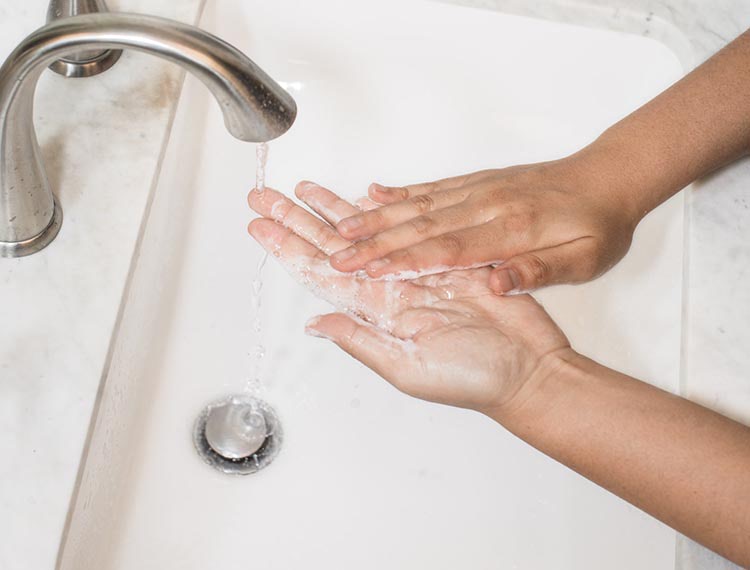One in four students says their school does not always have enough soap or sanitiser

Study by Initial Washroom Hygiene reveals that on average students wash their hands six times a day and for 18 seconds, which is below the minimum recommended time of 20 – 30 seconds
New research released today by Initial Washroom Hygiene, to coincide with Global Handwashing Day 2020, shows a dramatic increase in the public’s understanding of the importance of good hand hygiene, but also highlights the challenges schools face in trying to prevent the spread of Coronavirus amongst students.
The survey of 1,000 school students, and 1,000 parents with children aged between 8 and 18[1], shows strong awareness of the importance of hand hygiene. 94% of parents believe their children understand that washing hands helps to prevent the spread of Coronavirus, and 91% claim to actively encourage their children to wash their hands for 20 seconds or longer.
But when it comes to washing hands at school, there is still room for improvement. On average students spend 18 seconds each time they wash their hands at school, which is less than the recommended time of 20 – 30 seconds to effectively remove bacteria and microbes.
On average, students said that they wash their hands six times each day at school. According to government guidance, schools must ensure that pupils clean their hands regularly, including when they arrive at school, when they return from breaks, when they change rooms and before and after eating.
Encouragingly, 94% of students surveyed said they wash their hands after using the washroom – but rates decline at other key periods. 88% said they wash their hands before eating, 79% said they wash their hands after each playtime or break, and 62% wash their hands between lessons or classes.
Of the students surveyed 46% said they worry about going to school in case they catch or spread Coronavirus, and one in four (24%) students said their school does not always have enough soap or sanitiser. But to offset this, almost three quarters (73%) of parents surveyed provide their children with hand sanitiser to take to school.
Jamie Woodhall UK Technical & Innovation Manager, Initial Washroom Hygiene comments: “Global Handwashing Day 2020 takes on greater significance in the wake of the Coronavirus pandemic, with recent research showing that the virus can survive on human skin for up to nine hours if left undisturbed[2]. Education about good hand hygiene is vital to help prevent the spread of Coronavirus and other illnesses.
“Schools play a crucial role in breaking the ‘chain of infection’, and it centres on encouraging frequent handwashing and undertaking regular disinfection of key shared touchpoints. To do this, we recommend formalising handwashing within the school timetable, in a similar way that class changes, and lunch breaks are written into the daily schedule. Ensuring the provision of handwashing facilities, including soap, warm running water, sanitiser and drying facilities is vital.
“Acknowledging the challenges that schools face, more than three quarters (77%) of parents are confident that their children’s schools are doing what they can to keep children safe and prevent the spread of Coronavirus. 85% have received communication from schools outlining how they are complying with government guidance and 68% say they believe schools are doing a good job in preventing the spread of Coronavirus.”
Woodhall concludes: “After many years promoting the importance of hand hygiene, it is encouraging to see the messages are resonating with the public and behaviour is improving. We’ve come a long way in a relatively short period of time. For example, for Global Handwashing Day in 2018, we revealed that at that time almost three quarters (73%) of British families were failing to wash their hands before every meal and just 68% of Britons said they ensured their children always washed their hands before eating[3].”











Responses